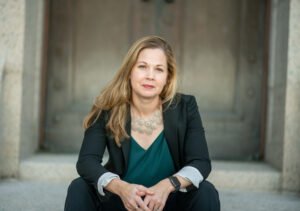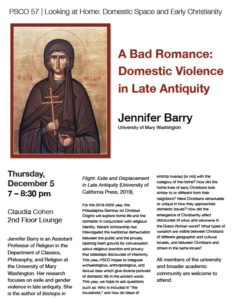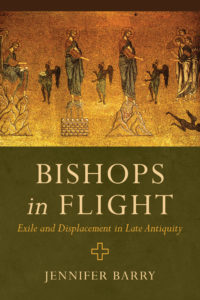
Associate Professor of Religious Studies Jennifer Barry
Jennifer Barry, Associate Professor of Religious Studies, was invited to be the 2024, Marsico Visiting Scholar at Denver University. Barry was invited to share material from the next book, meet with both undergraduate and graduate students, and co-teach a course on Gender and Sexuality in Early Christianity.
Barry also recently was honored with a book panel publication. The latest forum on Ancient Jew Review published the entire collection of reviews on Jennifer Barry’s Bishops in Flight: Exile and Displacement in Late Antiquity. The collection can be found here: SBL 2021 Review Panel: Bishops in Flight
Barry is currently on research leave as the 2023-2024 Harvard, Loeb Classical Library Fellow.


 On December 6, 2019,
On December 6, 2019,  Jennifer Barry, Assistant Professor of Religious Studies, was invited to give a book talk at Temple University on November 14, 2019. Barry presented to the audience material from her recent publication with the University of California Press,
Jennifer Barry, Assistant Professor of Religious Studies, was invited to give a book talk at Temple University on November 14, 2019. Barry presented to the audience material from her recent publication with the University of California Press, 
